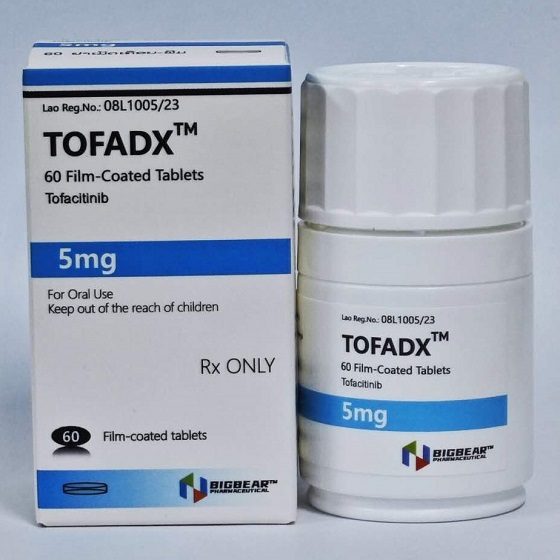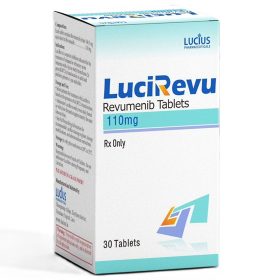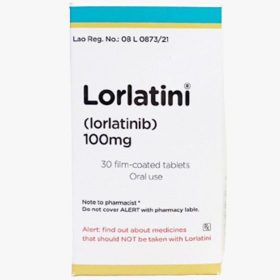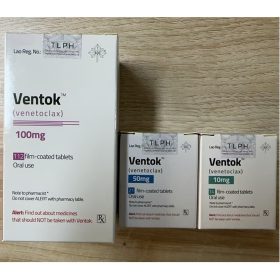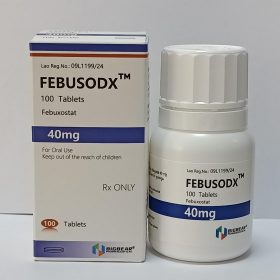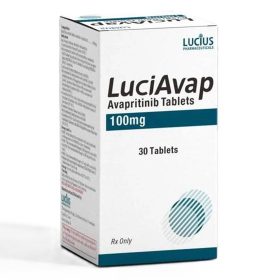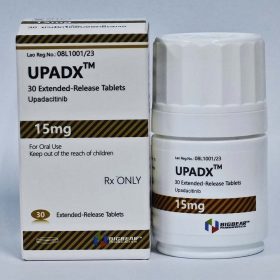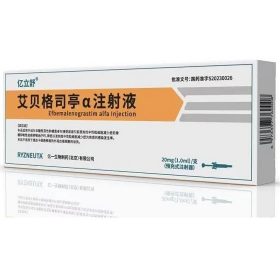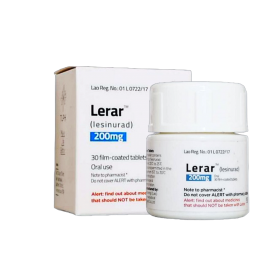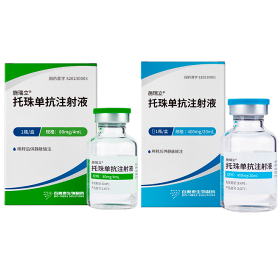- Details
- Description
-
Packaging Size60T/bottle
-
Strength5mg
-
CompositonTofacitinib
-
TreatmentRheumatoid Arthritis,Psoriatic Arthritis,Ulcerative Colitis,Ankylosing Spondylitis
-
FormTablet
-
BrandTOFADX
-
Quantity Unit5mg*60T/bottle
-
ManufacturerBIGBEAR Pharma,Laos PDR
Tofacitinib is used alone or with other medications to treat rheumatoid arthritis (condition in which the body attacks its own joints causing pain, swelling, and loss of function) in adults who are unable to take or did not respond to one or more tumor necrosis factor (TNF) inhibitor medication(s).
Rheumatoid Arthritis
Indicated for moderate-to-severe active rheumatoid arthritis (RA) in adults with an inadequate response or intolerance to ≥1 tumor necrosis factor (TNF) blockers
Tofacitinib: 5 mg PO BID
Tofacitinib XR: 11 mg PO qDay
Psoriatic Arthritis
Indicated for active psoriatic arthritis in adults who have had an inadequate response or intolerance to ≥1 TNF blockers
Recommended dose in combination with nonbiologic DMARDs
- Tofacitinib: 5 mg PO BID
- Tofacitinib XR: 11 mg PO qDay
Ulcerative Colitis
Indicated for adults with moderately to severely active ulcerative colitis (UC), who have had an inadequate response or intolerance to ≥1 TNF blockers
Tofacitinib
-
Induction
- 10 mg PO BID for at least 8 weeks; evaluate patients and transition to maintenance therapy depending on therapeutic response
- If needed, continue 10 mg BID for maximum of 16 weeks; discontinue after 16 weeks if adequate therapeutic benefit not achieved
-
Maintenance
- 5 mg PO BID; may consider 10 mg BID (limited to shorter duration) in patients with loss of response during maintenance treatment
- Use the lowest effective dose needed to maintain response
Tofacitinib XR
-
Induction
- 22 mg PO qDay for at least 8 weeks; evaluate patients and transition to maintenance therapy depending on therapeutic response
- If needed, continue 22 mg qDay for maximum of 16 weeks; discontinue after 16 weeks if adequate therapeutic benefit not achieved
-
Maintenance
- 11 mg PO qDay; may consider 22 mg qDay (limited to shorter duration) in patients with loss of response during maintenance treatment
- Use the lowest effective dose needed to maintain response
Ankylosing Spondylitis
Indicated for active ankylosing spondylitis (AS) in adults who have an inadequate response or are intolerant to ≥1 TNF blockers
Tofacitinib: 5 mg PO BID
Tofacitinib XR: 11 mg PO qDay
Dosage Modifications
Strong CYP3A4 inhibitors OR moderate CYP3A4 inhibitors with strong CYP2C19 inhibitors
-
RA, PsA, or AS
- Tofacitinib: Not to exceed 5 mg qDay
- Tofacitinib XR: Switch to Tofacitinib 5 mg qDay
-
UC
- Tofacitinib: If taking 10 mg BID, reduce to 5 mg BID; if taking 5 mg BID, reduce to 5 mg qDay
- Tofacitinib XR: If taking 22 mg qDay, reduce to 11 mg qDay; if taking 11 mg qDay, switch to Xeljanz 5 mg qDay
Lymphopenia
-
RA, PsA, AS, or UC
- Lymphocytes <500 cells/mm3: Confirmed by repeat testing; discontinue until infection controlled
ANC 500-1000 cells/mm³
-
RA, PsA, or AS
- Interrupt dosing for persistent decreases; when ANC >1000/mm3, resume dose at Tofacitinib 5 mg BID or Tofacitinib XR 11 mg qDay
- ANC <500 cells/mm3: Confirmed by repeat testing; discontinue
-
UC
- Tofacitinib: If taking 10 mg BID, reduce to 5 mg BID; when ANC >1000, increase to 10 mg BID based on clinical response; if taking 5 mg BID, interrupt dosing; when ANC >1000, resume 5 mg BID
- Tofacitinib XR: If taking 22 mg qDay, reduce to 11 mg qDay when ANC >1000, increase to 22 mg qDay based on clinical response; if taking 11 mg qDay, interrupt dosing; when ANC >1000, resume 11 mg qDay
Anemia
-
RA, PsA, AS, or UC
- Hgb >2 g/dL decrease or level <8.0 g/dL: Confirmed by repeat testing; interrupt treatment until Hgb levels have normalized
Renal impairment
-
RA, PsA, or AS
- Mild: No dosage adjustment required
- Moderate-to-severe (Tofacitinib): Not to exceed 5 mg qDay
- Moderate-to-severe (Tofacitinib XR): Switch to Xeljanz 5 mg qDay
- Patients undergoing hemodialysis: Administer dose after dialysis session on dialysis days; if dose administered before dialysis session, supplemental doses are not recommended
-
UC
- Mild (Tofacitinib and Tofacitinib XR): No dosage adjustment required
- Moderate-to-severe (Tofacitinib): If taking 10 mg BID, reduce to 5 mg BID; if taking 5 mg BID, reduce to 5 mg qDay
- Moderate-to-severe (Tofacitinib XR): If taking 22 mg qDay, reduce to 11 mg qDay; if taking 11 mg qDay, switch to Xeljanz 5 mg qDay
- Patients undergoing hemodialysis: Administer dose after dialysis session on dialysis days; if dose administered before dialysis session, supplemental doses are not recommended
Hepatic impairment
- Safety and efficacy have not been studied in patients with positive hepatitis B virus or hepatitis C virus serology (Add to adult)
-
RA, PsA, or AS
- Mild (Xeljanz and Xeljanz XR): No dosage adjustment required
- Moderate (Tofacitinib): Not to exceed 5 mg qDay
- Moderate (Tofacitinib XR): Switch to Xeljanz 5 mg qDay
- Severe (Tofacitinib and Tofacitinib XR): Not recommended
-
UC
- Mild (Tofacitinib and Tofacitinib XR): No dosage adjustment required
- Moderate (Tofacitinib): If taking 10 mg BID, reduce to 5 mg BID; if taking 5 mg BID, reduce to 5 mg qDay
- Moderate (Tofacitinib XR): If taking 22 mg qDay, reduce to 11 mg qDay; if taking 11 mg qDay, switch to Tofacitinib 5 mg qDay
- Severe (Tofacitinib and Tofacitinib XR): Not recommended
Dosing Considerations
Higher incidence of infections in geriatric patients; use with caution
Do not initiate if
- Absolute lymphocyte count <500 cells/mm3 OR
- ANC <1000 cells/mm3 OR
- Hgb <9 g/dL
Limitations of use
- RA, PsA, AS: Use in combination with biologic disease-modifying antirheumatic drugs (DMARDS) or potent immunosuppressants (eg, azathioprine, cyclosporine) is not recommended
- UC: Use in combination with biologic therapies or potent immunosuppressants (eg, azathioprine, cyclosporine) is not recommended

